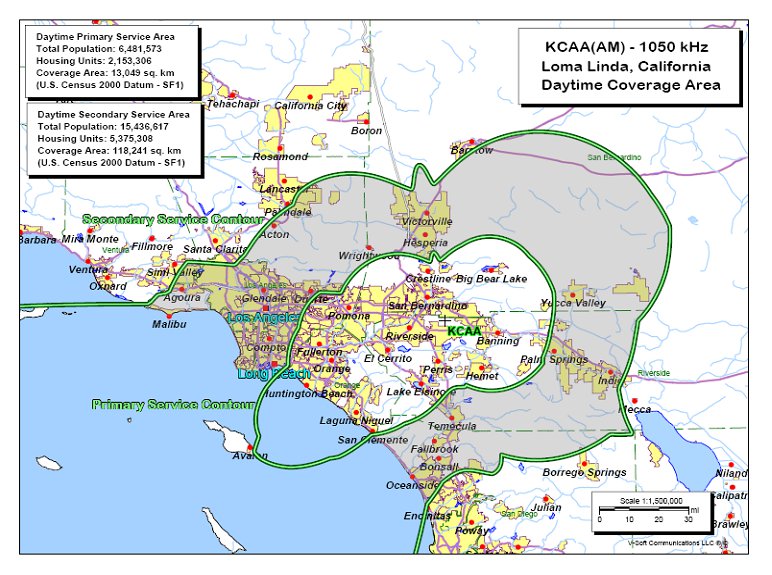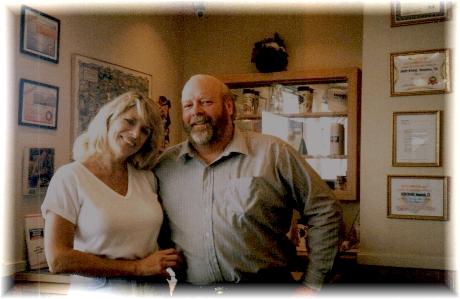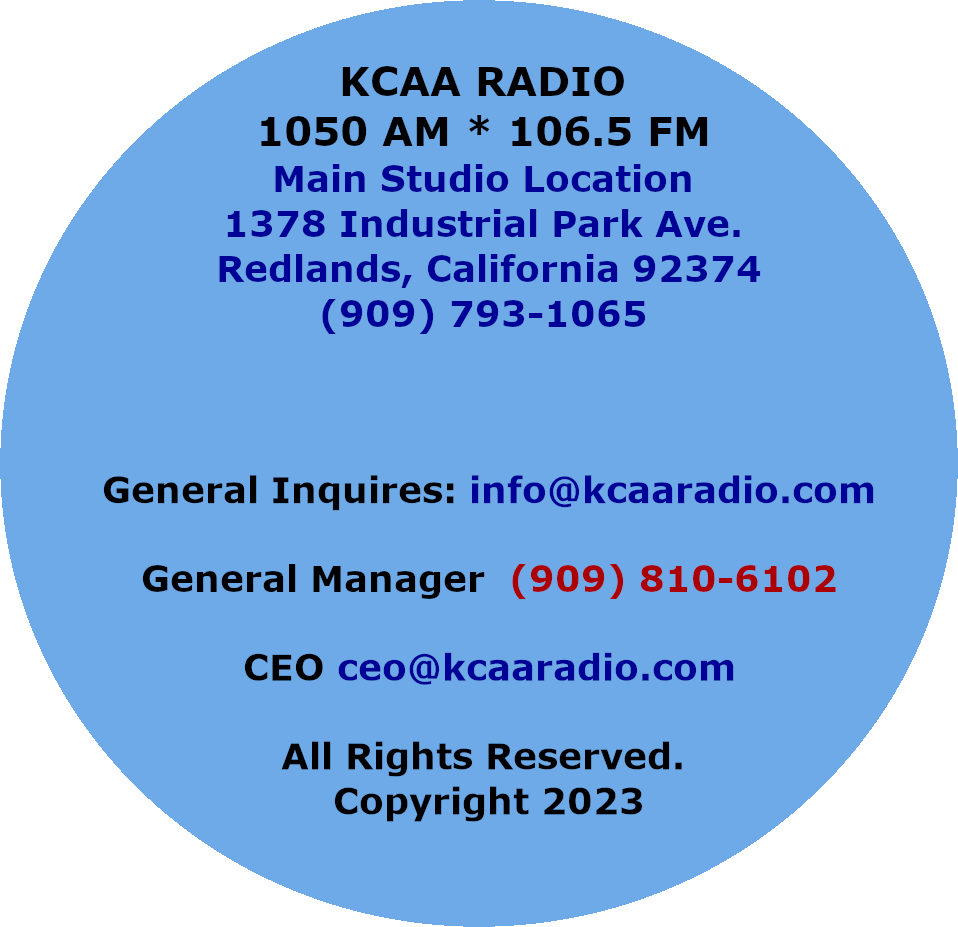 | ||||||
At the beginning of your program, at the beginning of each segment and at the end of your program, use the old rule that works for giving speeches:
(a) Always open with a synopsis of the program. (Tell them what you are going to tell them)
(b) Stick to your outline and move the program along so your audience will hear the subject matter promised - (Tell them what you told them you were going to tell them)
(c) At the end of each hour and at the end of your program, make sure to thank all of your guests and callers. Then summarize the program. (Tell them what you told them) and always mention the program that will air DURING THE NEXT HOUR..
Most people listen to a radio program on the run; a few minutes at a time. Others use it for background noise. Those who really listen and concentrate on your program for an extended length of time are the MINORITY of your audience.
Most radio listeners are under the same pressures you face each day. Your radio program is a momentary distraction...in the unlikely event they discover it on the dial. This is why radio audiences are measured by “AQH”, the number of people who listen during a quarter hour and by “cume”, the cumulative number of people who listen at some time during the week.
Prepare your program in advance by spending three minutes of preparation for every one minute you spend on the air. Rehearse! Try out your program ideas on friends who will offer candid responses and suggestions.
Begin your hour on the air with enough content to last two hours. If you are interviewing a guest, prepare enough questions to last much longer than the planned length of the interview. This is the proven method to keep the program moving at the proper pace and to guard yourself against “yes” and “no” answers from a shy guest. This also protects you on a low volume call-in day.
If you have too much content for one show, plan another show on the same subject!
If you can't find a guest for your particular topic, the helpful staff at www.guestmatch.com will be happy to assist absolutely free!
For information regarding access to guests on topical subjects, we suggest you visit this website.
You can email your request for a guest on a certain topic to [email protected] or call toll free (800) 372-8128.
Always be mindful that your program is a business. So, you should create a business plan around your program that includes long term sponsor or product support. Establish some financial goals and reasonable timelines for reaching your goals. You may want to incorporate your show and sell a percentage of it to an investor.
Establish a business plan that covers the cost of your airtime before you sign a contract with a station so you can concentrate on your program content and sponsors. You will not be a success overnight. However, you will succeed if you make a long-term commitment of time, enthusiasm and money.
All the time and money in the world will not make up for a boring or poorly executed program. Most new talk show hosts make the common mistake of talking to their guest/and or caller in a way that makes the listener feel excluded. When this happens, the radio show begins to sound like a private conversation between two people, like eavesdropping on a telephone extension without being part of the action.
So, try to draw each individual listener into the conversation you are having with guests and callers. If your monologues are provocative they will generate calls You will discover that callers generate more calls, and build the energy of the program. During your interviews, pretend you are having a conversation with one individual listener and the guest/caller, because from the perspective of the individual listener, that is exactly the situation.
It all boils down to having a conversation with your audience that holds their attention. This is very difficult to do if you talk at your audience and even more difficult to do if you seem to ignore your audience.
Never say, “For all you folks out there in radio land”. Never distance yourself from your terrestrial audience with anything you say.
Don’t get distracted by your online audience. You may have lots of people signed into your social media sites, which is quite an ego builder, but you may have several thousands of people listening to you over the air. Would you stop a speech in front of 1,000 people in order to answer a text message?
Announce your phone number when you're going into a commercial break and when you return from the break. Don’t beg for callers. If your program is provocative and interesting, listeners will listen but they may, or may or may not call you. The level of audience feedback is primarily related to your content.
Giveaways from sponsors always help to generate calls. Teasing upcoming shows and giveaway promotions is another way to keep your listeners coming back and to build a loyal listener base.
Always assume you have an audience, especially when you don’t get calls or if your sponsor/advertisers don't get immediate results. Advertiser results and phone responses stem from listener trust and their comfort level with you and their desire for the products or services you advertise. This takes time to develop. IT IS NOT EASY!!
Don’t allow anything to take your attention away from your most important task, and that is to produce the best program possible. It is all about your air sound.
Self promotion is essential. The days are long past when you could open the microphone and expect instant results. We live in an ocean of media and you must aggressively compete for attention.
Remember, your listeners come and go during the hour. You must find ways to make your program known and make it a priority in the lives of as many people as possible. The social networks like Facebook and LinkedIn and Twitter are becoming essential methods of self promotion. You should use them for all they are worth and do so daily.
This website was built with the homestead sitebuilder. It's simple and easy to use and understand. If you don't have a website, we recommend www.homestead.com
Here are a few more promotional tools.
http://www.spreaker.com This company offers a group of services that support numerous aspects of your program. The company’s support services will add depth to your multi media platforms.
There are two services that will enhance your twitter account. The first is called http://www.twitlonger.com This service allows you to post long tweets and it’s great to have when you need to publish longer promotional articles about your program.
Here is your mobile twitter sign up page… https://mobile.twitter.com
Here is a service that allows you to add twitter followers and follow others while removing fake and other undesirable followers. www.manageflitter.com This service is important for anyone wanting to quickly add thousands of Twitter followers.
This site will publish your bio and it’s free.
You should seek acceptance by large publications. In 2012, I was fortunate enough to be accepted by The Huffington Post If you are a seasoned writer, you might find a home with one of these mega-organizations. At that point, you will have the benefit (and scrutiny) of their editorial staff and distribution systems. This can result in a tremendous amount of consistent publicity. When you complete this turorial, type the name Fred Lundgren into Google search and see the top results.
Next, here is how to publish directly to Kindle.
These sites allow you to self publish your blog.
Use Google to track and calculate your website visitors and demographics
Distribute press releases about your program. Here is a site that will publish your press release for a fee...
http://www.pr.com/press-release-pricing Check Google search for more options
Here are two sources of software designed for the mass distribution of press releases
http://www.marketpressrelease.com/ http://products.softsolutionslimited.com/news_publisher/index.htm
This interview explains how a coupon program works. Publish videos to get free publicity.
Request to be interviewed on your flagship station's Morning Show and other shows on the station. Offer to interview other show hosts in exchange for your appearance on their show,
You should attempt to trade out print ads about your program in newspapers and local television. Remember, these media outlets need to advertise too. Think of every legal way to promote your program. Think of ways to get free press. The press should always be exploited when possible. Ask any politician.
Have you thought of getting trade outs for signs on the back of a bus ot Taxi? Have you thought of making a trade for commercials with a car dealer who would agree to leave a brochure about your program in the seat of every auto they repaired or sold?
Have you thought about asking a car dealer to set the radio dial on every car repaired or sold to your flagship station? For female on-air personalities, what about leaving brochures at your hair and nail salons?
Almost all local vendors are willing to let you leave a small stack of promotional materials on their counter in trade for spots. Many will allow you to put posters in their windows. Offer them lots of spots on the air for the privilege. Always encourage your flagship station to offer a freebies to your advertisers to sweeten the deal for you and your advertisers.
Promote yourself like you were running for public office. In many ways, the self-promotion necessary to be successful in the radio business resembles running a constant political or issues campaign.
A side note here; in many ways, volunteering your services to a political or issues campaign provides you with an experience that parallels the promotion/campaign necessary to be a successful independent broadcaster.
Realistically, radio is simply the bottom step on the show business ladder. In the long run, listeners must like you enough to vote for you with their radio dial and by supporting the products and services you sell. In essence, your radio program is ½ “Show" and ½ "business" and to be a successful broadcaster, you must succeed on both fronts.
Since radio is ½ show and ½ business, you need certain talents to be successful. YOU DO NOT HAVE THE LUXURY OF THE COP-OUT, "I hate to sell” or “I can’t sell”. If you start with that attitude, you will fail, period!
The best sales person you will ever have is looking at you in the mirror every morning. Ignore any tapes that might be running in your mind that say "I can’t sell", just go out and do it.
On average, you will have to make 15 calls before you'll get one or two be-backs. Keep making the calls and always follow up with the be-backs. Keep a daily diary of every sales call you make and review it daily because without it, you will not remeber follow-ups and sales will suffer. This is tried and true. It works.
You can hire bird-dogs, which is slang for a person who will get leads under your direction, or you can hire a salesperson, however, NEVER depend exclusively on a sales person or a bird dog. No one can sell you like YOU.
For the first 2/1/2 years of our station 's operation, I was the only sales staff. The occasional sale that walked in the door was the exception. These "walk-ins" are called house accounts. In other words,as a a ceo of a radio station, I worked 2 ½ years before I hired anyone to sell.
I was astounded recently to learn that one talk show host at our station was actually playing solitaire while on the air. Another was watching the Fox News (at our NBC station!) during a board shift. Yet, another was passing time on a personal phone call and taking care of private business matters while producing a live show. INCREDIBLE... This is simply not acceptable SO DON'T DO IT.
Remember, there is a croud on the other end of your michrophone. Respect them. Be professional. Even though you can't see your listeners, they are listening and grading you to determine if you are worth their time.
If your flagship station offers a video feed, dress accordingly and seek the advise of your station's Program Director. Don't pick your nose or scrath yourself. Look at the camera, not your engineer. Move as little as possible within the frame. Avoid any fast movement and try not to talk with your hands.
Listeners, and certainly viewers will know the difference between someone who is “phoning it in” and someone who is giving 100% to their performance. Listeners can actually hear differences between the sound of a host who stands and a host who is seated during a performance. The sound of a host who stands during the performance delivers a sense of immediacy or urgency that is difficult to duplicate while seated.
Contact me if you want to learn more about becoming a professional broadcaster.
"Break-a-leg"
Thanks,
Fred Lundgren

WELCOME
Hello! My name is Fred Lundgren, seen here with my beautiful and talented wife, Linda Carol Lundgren. We are the founders of KCAA Radio which is licensed to Loma Linda, California.
Every day, I hear locally produced shows on KCAA that could be improved in order to increase listenership and gain advertiser support. Here are my thoughts on how to create a successful talk program:
(1) We suggest a form of program segments shown in this hourly pie chart. In radio, we call it a “clock”.
This allows listeners to expect the same content during each day at a certain time during the hour. If your program is picked up for syndication, the network will adopt this standardized system to control breaks. For example, if you conduct regular guest interviews, start them at the same time after the top of the hour, followed by listener call-ins, more interviews and more listener call-ins. This establishes a predicable program "rhythm" that your listeners will expect.



ENJOY YOUR FREE RADIO TALK SHOW TUTORIAL
A COURTESY OF KCAA 1050 AM, LOMA LINDA CA.

KCAA RADIO
LOMA LINDA, CALIFORNIA
CONTACT
Fred Lundgren
(281) 599-9800
255,000 VISITS WORLDWIDE FROM
157 COUNTRIES
THIS TIME MAY BE RESERVED BY THE STATION FOR NATIONAL AND LOCAL NEWS AND WEATHER OR ADDED TO YOUR TIME
THESE SEGMENTS ARE TYPICALLY SHARED WITH STATIONS TO AIR COMMERCIALS FOR YOUR SPONSORS AND STATION SPONSERS
THIS TIME MAY BE RESERVED BY THE STATIONS FOR IDENTIFICATION OR FOR HEADLINE NEWS AND TEASERS
THIS IS YOUR PROGRAM TIME AND IT EXCLUDES ALL STATION ADS THAT DO NOT GENERATE REVENUE FOR YOU
THESE SEGMENTS ARE RESERVED FOR NETWORK ADS. YOU WILL SHARE THIS AD TIME WITH THE STATION IF NOT SYNDICATED.

